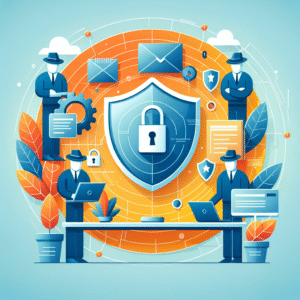
In today's increasingly connected world, digital marketing has become an indispensable tool for Italian SMEs and freelancers who want to get noticed and grow. However, there is a growing trend toward a more responsible and sustainable approach: ethical digital marketing. But what does it mean concretely? And how to apply it in your business without complicating your life?
## What is ethical digital marketing?
Ethical digital marketing is based on principles of transparency, respect for privacy, sustainability, and honesty with customers. It is not just about selling a product or service, but about building trust and lasting relationships by valuing authentic brand values. For an SME or freelancer, taking an ethical approach means choosing strategies that respect people's dignity and avoid manipulative or deceptive practices.
For example, using advertising campaigns that are clear, non-misleading, and respect users' privacy is a key component. Likewise, reducing the waste of digital resources and promoting positive messages helps build a strong and sustainable reputation.
## Why is it worthwhile to adopt ethical digital marketing?
1. **Customer Loyalty**: Consumers are increasingly attentive to how companies treat their data and what values they promote. An ethical approach builds trust that increases loyalty over time.
2. **Solid reputation**: Being transparent and consistent with one's values improves brand perception, which is critical to standing out in a competitive market.
3. **Compliance and Security**: Comply with regulations such as GDPR, avoiding penalties and legal risks that could jeopardize business.
4. **Positive Impact**: Contributes to a healthier digital environment and a more just society, values that more and more people value.
## Three practical takeaways for ethical digital marketing
1. **Collect data with transparency and honesty**
First, always clearly inform users why you are collecting their data and how you will use it. Use clear and simple consent tools, such as readable and unobtrusive cookie banners. Avoid using covert tactics to track online behavior. This not only respects privacy but builds trust.
2. **Create authentic and useful content**
Focus on content that meets the real needs of your customers, avoiding misleading or exaggerated messages. For example, if you sell handcrafted products, tell the story behind the production and the value added, instead of promising impossible results. An informative blog or hands-on tutorials are great ways to educate and engage without commercial pressure.
3. **Choose sustainable platforms and partners**
Pay attention to the advertising platforms you use and the digital partners you work with, favoring those who share ethical and sustainable values. For example, prefer green hosting that uses renewable energy or email marketing platforms with clear policies on data protection. Showing concern for the environment and sustainability strengthens your image and can attract an audience sensitive to these issues.
## List: quick checklist to get started with ethical digital marketing today
- [ ] Check and update your privacy and cookie policy
- [ ] Uses tracking software that complies with the GDPR
- [ ] Write content that is clear, truthful, and without hyperbole
- [ ] Choose digital service providers with a focus on sustainability
- [ ] Regularly monitor campaigns to eliminate aggressive or misleading messages
- [ ] Maintain an open dialogue with customers, gathering feedback and responding respectfully
Every small step forward in ethical marketing strengthens your brand's credibility and creates a solid foundation for long-term growth.
—
If you want to take your digital marketing to a more responsible and compelling level, try applying these practical tips now. Your audience will appreciate sincerity and engagement, and your business can make a difference in the marketplace and society.
Contact me to find out how to build an ethical digital strategy tailored to your business!







